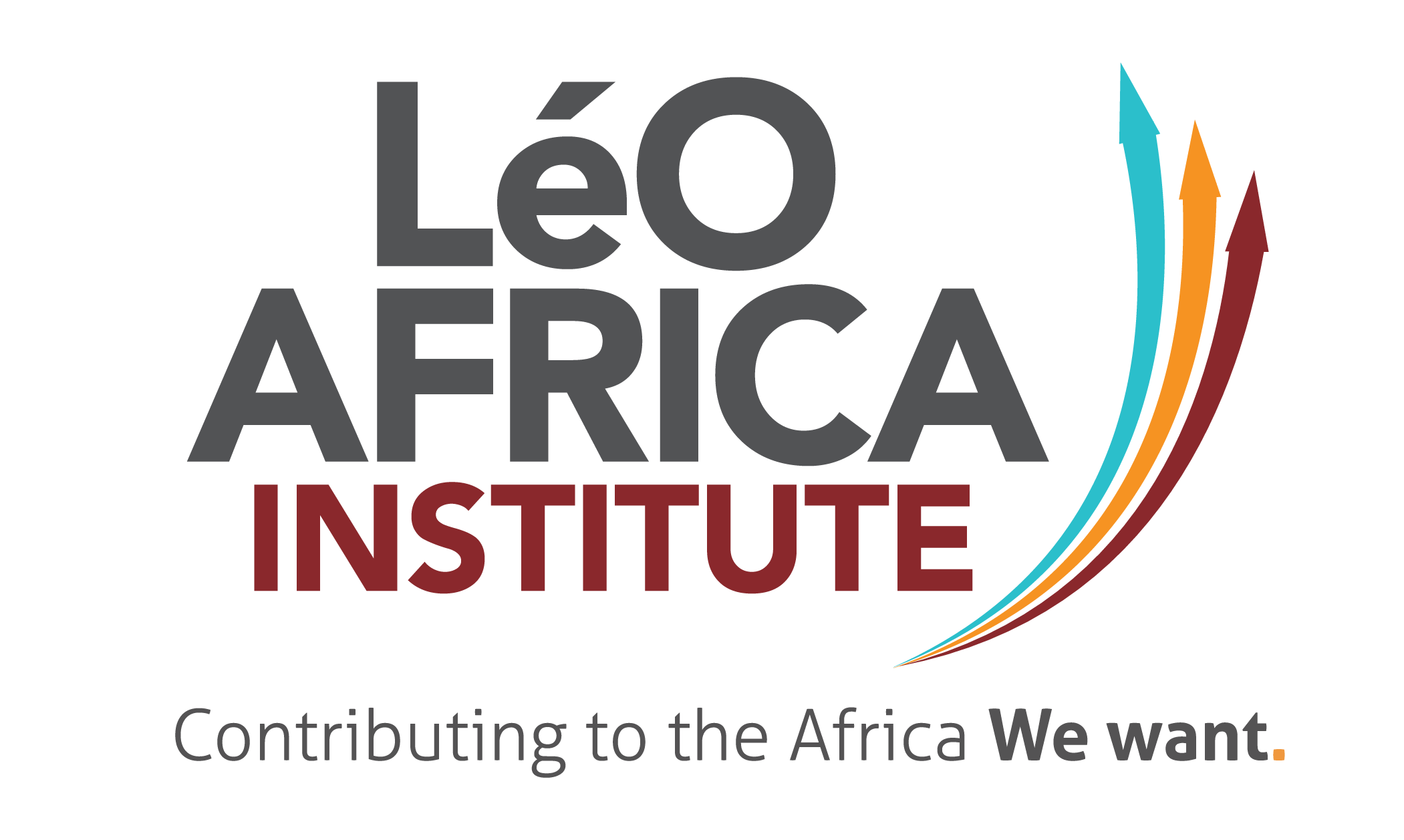- May 15, 2018
- Posted by: Donnas Ojok
- Category: Blog
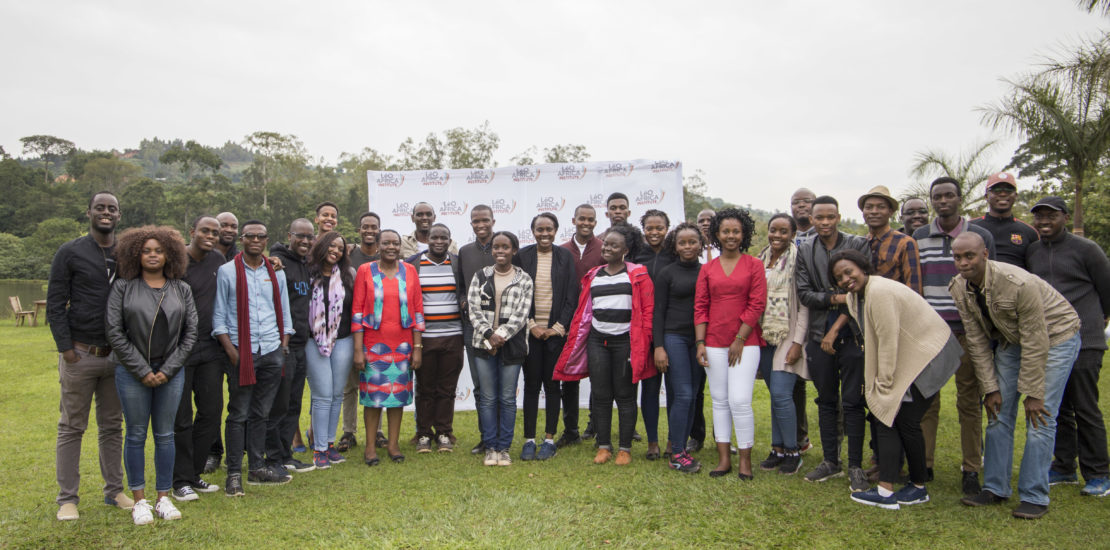
As part of a flagship youth leadership programme with the LeO Africa Institute, supported by the Konrad Adenauer Stiftung and Stanbic Bank, the second cohort of young and emerging leaders from the five EAC member states commenced their stimulating fellowship expedition in mid-April 2018.
The Young and Emerging Leaders Programme (YELP) — is a leadership linchpin that annually inducts between 25–35 outstanding thought leaders into a fellowship program designed to train and orient values of self-advancement, integrity, social responsibility, and socioeconomic transformation. YELP Fellows have backgrounds in media, social enterprise, the Arts, innovation, and activism. The fellowship imparts critical skills needed in leadership that transforms the individual and society around them. This is achieved through critical reflection sessions, conversations with leaders from various sectors, peer-to-peer sharing and readings about leadership in Africa and the rest of the world.
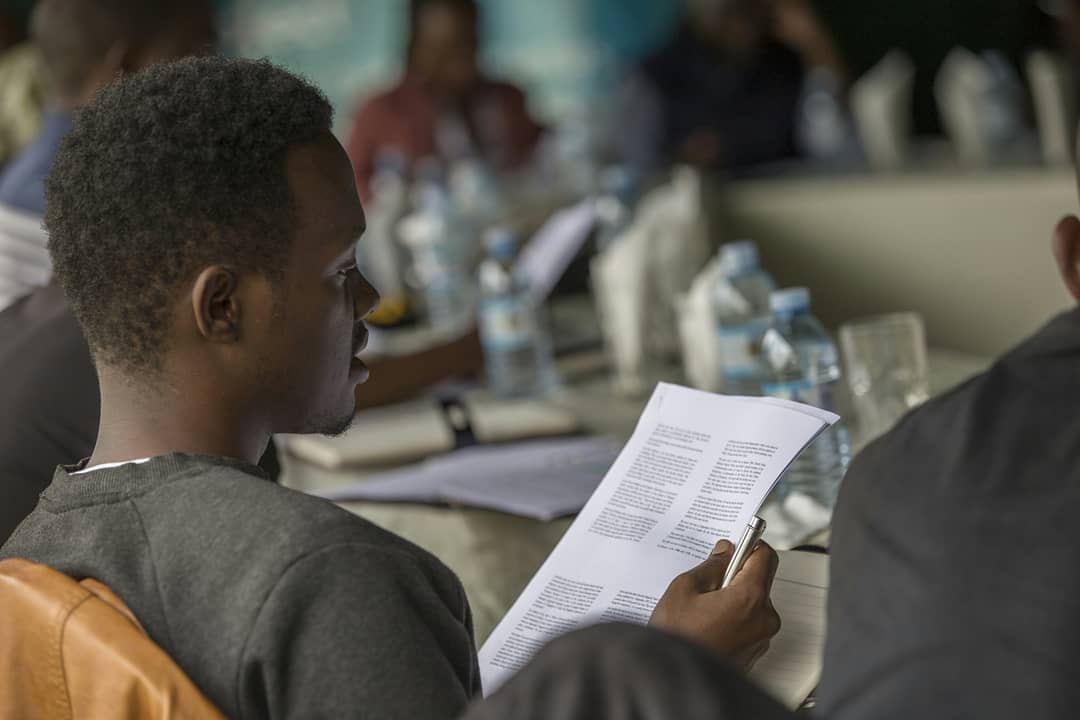
Inaugurated in 2016, YELP has since grown to vibrant innovative and community impact initiative attracting the strategic support of Stanbic, a titan of the banking industry in Uganda. As a strategic partner, Stanbic Bank’s CEO Patrick Mweheire hosted the young leaders at the bank’s headquarters over breakfast where he shared with them about his experience as a leader in the corporate business world.
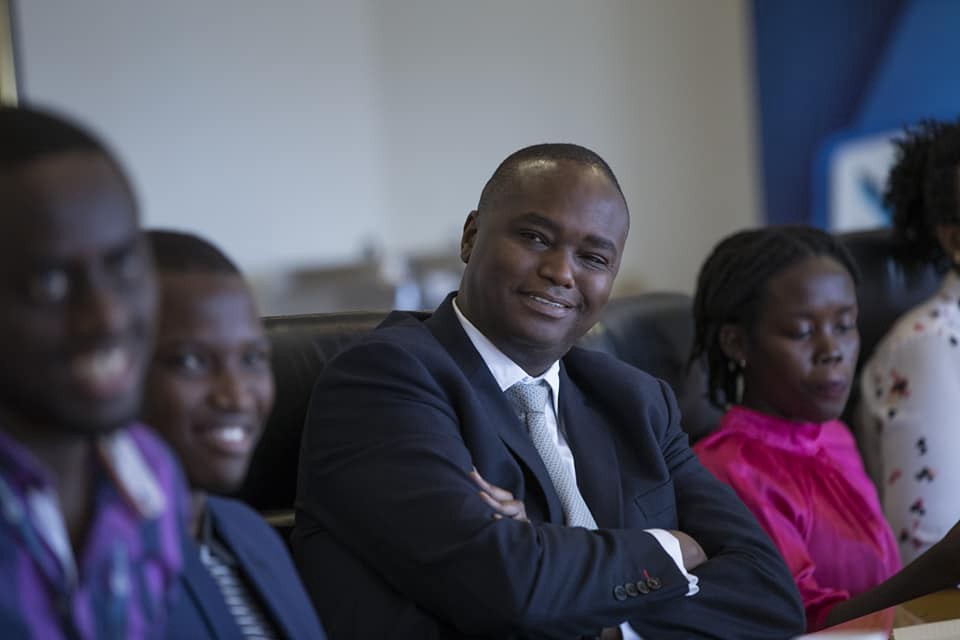
In his remarks, Patrick observed that Stanbic Bank’s support to the programme isn’t only part of their (Stanbic’s) social impact investment but it is also a way of giving back to the community by offering some of East Africa’s finest young and emerging leaders the opportunity to understand the dynamics of 21st century leadership and how to manage processes and teams in the ever changing world of business. The breakfast meeting was followed by a dinner reception at the Kampala Sheraton Hotel that was meant to welcome the fellows in to the programme.
It wasn’t just an evening of great cuisine as it provided a unique discursive platform to debate about the Africa’s greatest opportunities and challenges and what role the continent’s youthful population can play. The panel session, co-moderated by one of Uganda’s most prolific and youngest journalist, Raymond Mujuni who is also an inaugural fellow of the programme and Fiona Kimakazi, another media practitioner and a current YELP fellow from Rwanda was timely and insightful to say the least. To spark off the discussion, the moderators tasked panelists to offer their insights on the Africa rising narrative.
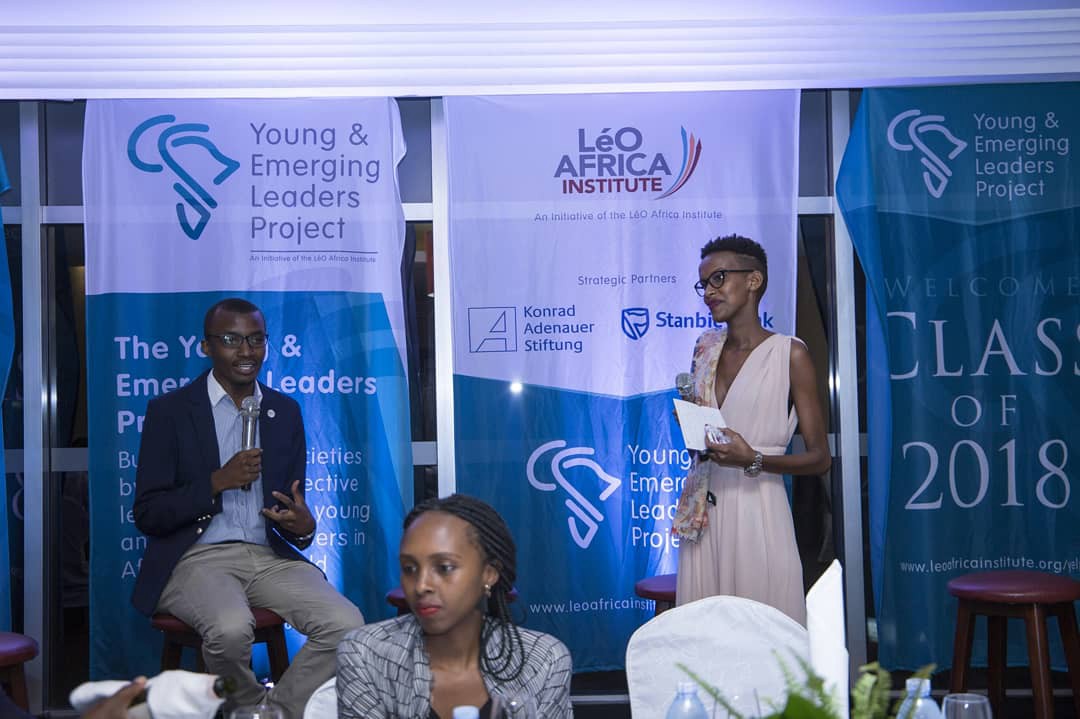
Panelist Anne Wanjuhi, a 2018 YELP Fellow and social entrepreneur from Kenya wished that if Africa was a country, the rising would be faster as borderlines separating the different countries in Africa continue to pose significant challenges to the development of the continent.
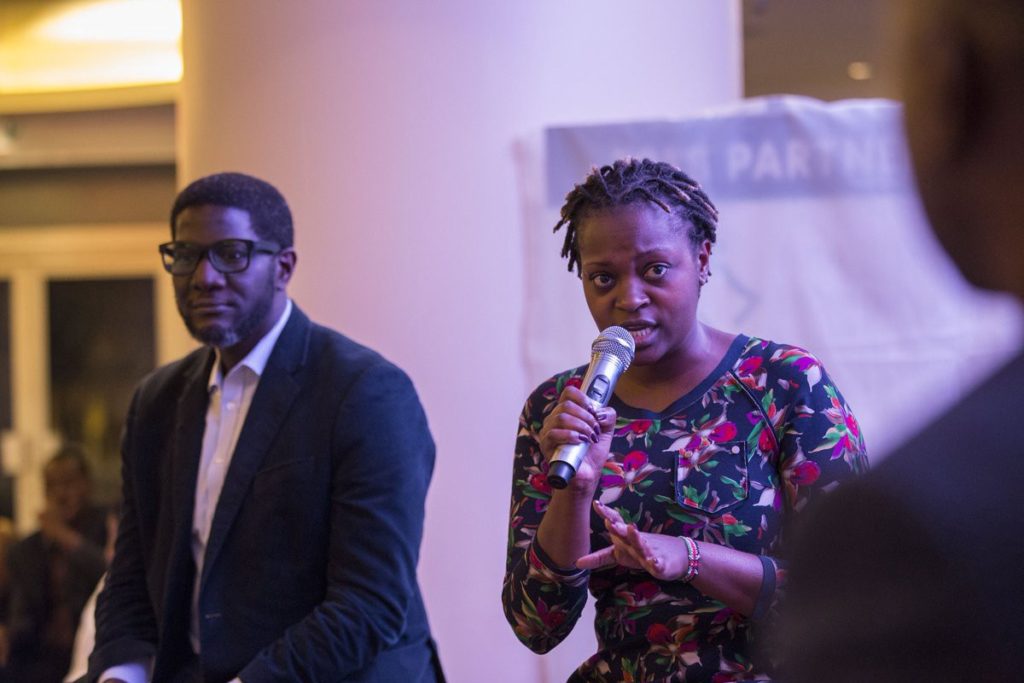
“I wish Africa was a country, there would be no Tanzanian or Kenya or Uganda. Development would be swift” she mused. “Can you imagine that flying between Entebbe and Nairobi Airports is one of the most expensive flight routes in the world, despite the fact that Kenya and Uganda are within the EAC region separated by just one lake?” she frantically asked, sparking a tense thoughtful scene in the audience.
To expound further on this, Mathias Kamp, the KAS country director offered another illuminating thought about the lopsided confusions embedded within the Africa rising narrative because of the complexities of the economic, political and social events occurring in Africa today. However, he maintained that, “there might not be one straight answer to the Africa rising narrative. But one thing is clear: Africa is moving forward and the role of the African youth in shaping this movement cannot be disputed”
Africa’s greatest resource is the young minds. One of the reasons Stanbic is interested in such initiatives is to unlock the minds that will redefine the future. – Samuel Mwogeza, Stanbic Bank
To this note, panellist Awel Uwihanganye, LeO Africa Institute’s Senior Director emphasised the fact that Africa has one of the youngest populations around the world and so there isn’t a choice but to invest in these people. As part of this investment, Awel added, “the fellowship will contribute towards the building of a community of people who are significant in society and are building a progressive and prosperous continent”.
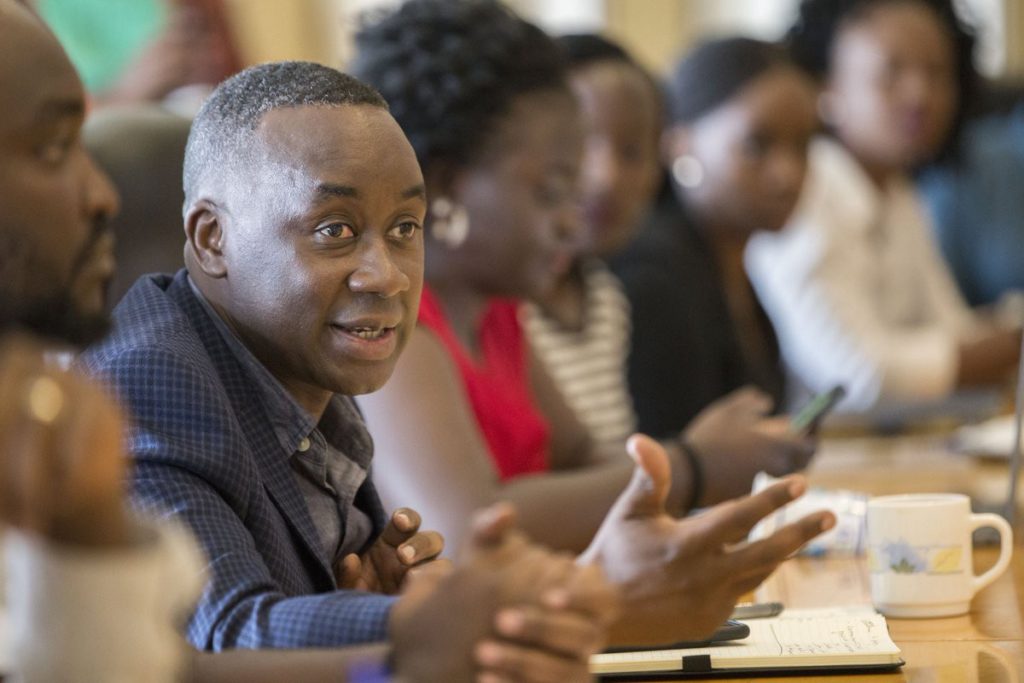
On what young people can and should do, Mathias Kamp asked “how do we strike a balance between young people in Africa creating their own spaces and demanding for a better leadership to create that space? He asked this question because addressing Africa’s development predicaments requires dealing with the political leadership and governance questions which when answered, Mathias insists “will go a long way in creating a better and more progressive continent”. “Yes, young people like all of you here tonight should continue being creative, starting up businesses and solving social problems. But that doesn’t not mean that we shall stop questioning our leaders to be accountable and play their part in making the continent rise faster” he warned. “Most times, the problems are so political and it is through politics that we can find sustainable solutions” he concluded.
Sitting here and listening conversations about the opportunities and challenges in Africa is so refreshing and insightful that you just want to do more to create a transformative paradigm shift – Hasheem Wasswa
On the second day, the workshop kicked off in Mukono at the tranquil and nature-filled reserves of Kansenge Forest Lodge. YELP’s text based workshop sessions enable fellows to deeply delve on literary works about the past, present and future leadership in and on Africa.
The cold Saturday morning provided thoughtful ambience for critical reflections about a speech Lee Kuan Yew, Singapore’s former Prime Minister gave to an audience of African leaders at Africa Leadership Forum in 1993. In his speech Kuan Yew wondered why many African countries still lag behind the development race when they were at almost the same developmental stage at the time of independence. In as much as there isn’t a golden standard path, Kuan Yew noted, there are basics that must be done for any transformational change to occur and which were significant for Singapore’s case, namely: running a government and civil service free of corruption, enforcing national solidarity despite tribal and other differences, promoting planned births, implementing pragmatic economic plans, allowing the private sector to thrive, educating everyone, especially the women and lastly, going for results not political correctness.
Reflecting on the speech, Fellow Amina Adhan Ahmed expressed her dissatisfaction with the performance of African leaders since independence but also maintained that the flickers of hope continue shining on Africa’s horizon because young leaders as aspiring to shape the present and the future of the continent in unimaginable ways. Through her blog, the East African perspectives, for instance, she writes and edits stories of incredible youth initiatives across East Africa creating impact and providing sustainable solutions to various challenges that continue to riddle progress in the region.
Another fellow, Canary Mugume, a young journalist from NBS TV in Uganda reiterated that more than ever before, the media in Africa should play its role of being critical and holding leaders accountable and also telling true and factual stories about Africa. “This is a challenge I take on every day in my career as a young journalist; a mantle I will continue fighting for to re-create a better continent”, he promised.
Perhaps a more riveting and mind-blowing literary piece at the seminar was Ali Mafuruki’s seminal critic of Kwame Nkrumah’s legacy. Speaking before an audience, most of whom African heads of state at the TANA High Level Forum on Security in Africa held in Ethiopia on the 18th April 2015, Mafuruki debunked all conventional knowledge and legacy of Nkrumah as a selfless pan African leader. In fact, Mafuruki considers the Osagyefo Nkrumah as a selfish, corrupt, arrogant and tyrannical African leader who pursued an unrealistic Pan-African dream of uniting the entire continent without critically reflecting on its essence and relevance to the needs of the ordinary person. “No wonder, he died in Romania, a broken and lonely man, long forgotten by most of Africa and the world at large” he painfully wrote.
Whilst Mafuruki believes that Nkrumah was wrong with his elusive and selfish dream of a political union in Africa, he believes that some sort of African unity must still be pursued by Africans today — “the kind of union that works in the current global setup” he insisted.
Reflecting on the reading, Fellow Acan Immaculate, writer and medical student just like the rest of the fellows were thrown aback by this teeth-gnashing critic of a leader whom most people revere as some sort of African ‘messiah’. However, Acan notes, “this reading has given me a new thinking about what leadership and legacy is and how I can be a better leader”. To some fellows, the reading was important for inculcating in them the zeal to scratch beyond face value and dig deep; not accepting what everyone thinks and agrees with. For Shirley Kandabu, for instance, “the reading has expanded my quest for unconventionality and setting the bar a bit higher for our leaders. They must know that when they do good things, they are not offering us favors but doing exactly what they should do” she said.
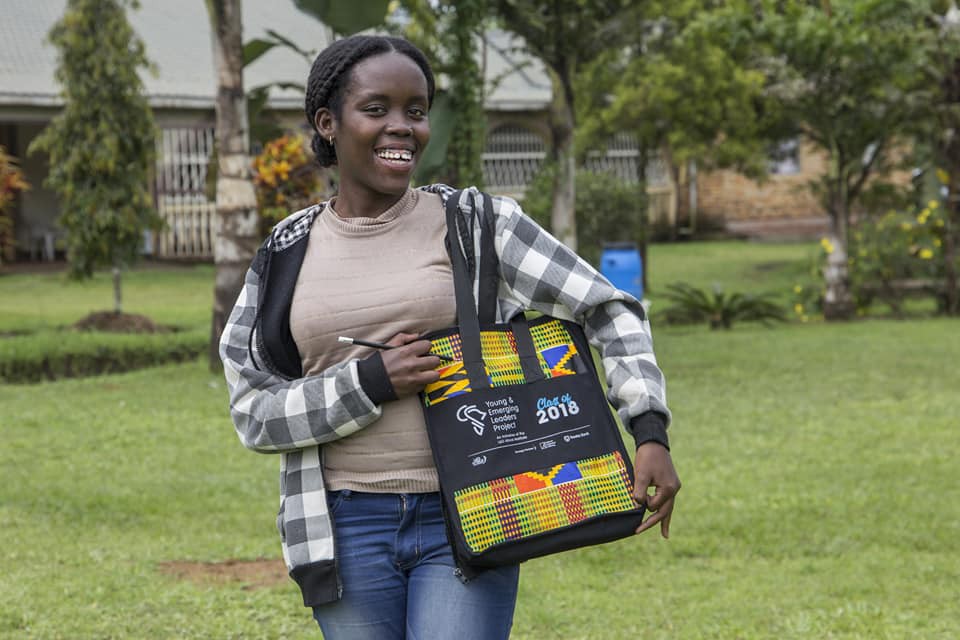
Another reading, a letter written by Patrice Lumumba to his wife Pauline in 1960 a few weeks before he was assassinated by combined efforts of American and Belgian governments and Congolese collaborators. Well aware that he just had a few moments to live, Lumumba’s letter rings a loud bell of hope in African independence and why it must be pursued against all odds. His faith was unshakable in this idea and he strongly felt that the continent would free itself from the shackles of foreign domination and hopelessness. In the letter, Lumumba believes that “one day, Africa will write its own history and it will be a history full of glory and dignity”.
The reading provoked a more contemporary fundamental reflection: it’s been over 68 years after Lumumba’s believe that Africa will one day write a history full of glory and dignity and the continent still remains, as the American President Donald Trump calls it a “shithole”. In fact, DRC’s case could even be referred to as a “basket case” as it scores lowest in all development indicators despite being one of the wealthiest countries on earth on natural resource terms. This thus begs the question: when will Lumumba’s history be written?
For Fellow Gabriel Karsan who is a Tanzanian university student, Lumumba’s history will be written “when a critical mass of young Africans in all countries wake up from the deep slumber and relentlessly work for something greater than ourselves”. This involves not only being part of social change projects and starting businesses to create economic opportunities, but also holding leaders accountable and making sure that they deliver on their promises” he said.
For Fellow Boaz Opio, a journalist and cultural advocate, Lumumba’s history will be written when the African people starts to critically reflection about their African identity and true self. “We have been change from the people we are originally because of colonialism and other encounters with foreigners” Opio stated. “How then shall we move to a better path when we do not authentically know who we are?” He wondered. In his submission, Opio called for the need to reevaluate our religious, cultural and social practices and insist on appreciating what values and traditions are applicable for the African context.
True, the readings helped the fellows to connect their ideas and visions to individual action and to embrace the concept of servant leadership: the idea of submitting one’s self to the betterment of lives of others and a better society.
Another hallmark of YELP Seminar sessions are its deep, intensive, thoughtful and soothing experience sharing sessions. In such sessions, senior professionals have informal conversations with the fellows to share their leadership highs and lows and provide some guidance and inspiration. The 2018 rendition of the experience sharing was special in many ways. Not only did we have a remarkable speaker — the Lady Justice Irene Mulyagonza who is the Inspectorate General of the Government of Uganda but the environs and format of the discussion was also authentically natural as fellows and the speaker got lost in the conversation basking in a somewhat cloudy and sunny afternoon at the nose Kasenge’s handmade lake, overlooking its towering Mvule jungles (where the fellows later earned a well-deserved forest trek).
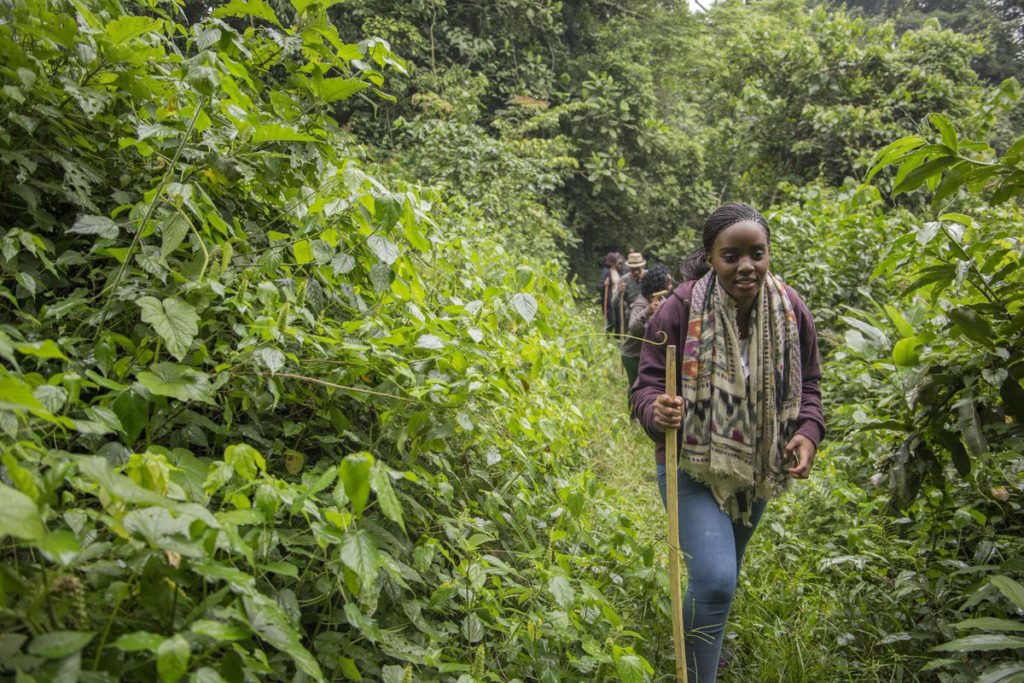
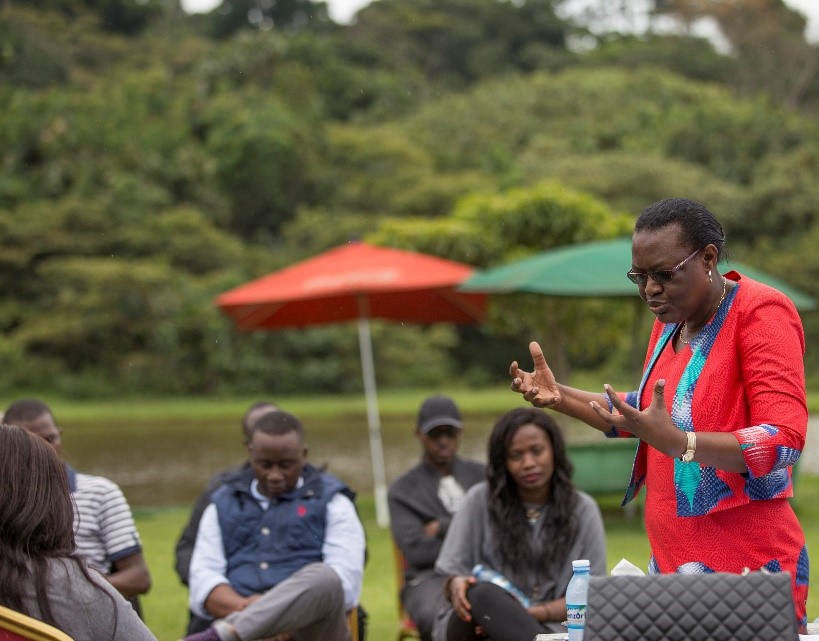 Irene Mulyangonza hinted on the essence of collaborations, building strong relationship and networks, being faithful and loving what you do: As an “outsider” (not a fellow of the programme), I was enthralled by the energy, enthusiasm and passion of the #YELPEES18 and I couldn’t help but imagine that maybe if Lumumba resurrects in 2050, the African history shall have been written. And make no mistake, “it will be a history full of glory and dignity”.
Irene Mulyangonza hinted on the essence of collaborations, building strong relationship and networks, being faithful and loving what you do: As an “outsider” (not a fellow of the programme), I was enthralled by the energy, enthusiasm and passion of the #YELPEES18 and I couldn’t help but imagine that maybe if Lumumba resurrects in 2050, the African history shall have been written. And make no mistake, “it will be a history full of glory and dignity”.
